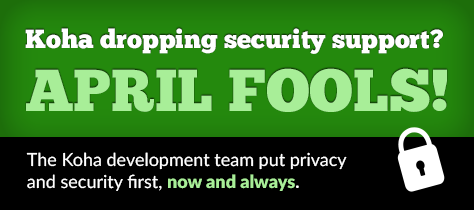I only ever met Jim in person once, at ALA in New Orleans a few years ago but his reputation well and truly preceded him. For those who don’t know Jim is retiring from his role as Director of NEKLS (Northeast Kansas Library System). But in his time as Director, NEKLS have embraced not only Koha but Open Source in general. Here is just a small part of that story, from facts I have gleaned by asking around. Please if anyone has any corrections, don’t hesitate to let me know.
Back in the day, NEKLS had a shared regional catalogue (I’m going with NZ english spelling before someone corrects that:)) called NExpress. They joined another consortium that was running a Sirsi system. Due to a variety of reasons including the desire to be in control of the system, to be able to mold it to their needs and to be in control of the implementation, they decided to move to another ILS. Due to those same reasons it really could only be an Open Source system, other systems simply can not be modified to anywhere near the same extent. Of course when choosing Koha, the monetary cost came into consideration, buying licenses for the 13 libraries that were part of the shared system at that time was a decent chunk of money.
Being the Director, the buck stopped with Jim, and he made the decision (trusting in the skills and knowledge of his staff) to go with Koha. As NExpress is all about resource sharing, the value of a project where sharing is the core became pretty evident. From what I can tell from reading and talking with people who worked with Jim, the values resonated with him personally as well. Under Jim’s leadership NEKLS began to cooperate and share on a world stage, developments paid for by NEKLS are being used by libraries in every corner of the world.
However this certainly wasn’t the only hard Koha related decision Jim had to make, when Liblime moved away from the community, and began to offer support only for their fork of Koha, NEKLS had to decide what it would do. So despite it being a very hard decision to make and that it would most certainly involve ramifications, Jim took the bold choice to move from Liblime before the contract had ended and back to Koha (supported by ByWater Solutions).
The takeaway from me is that Jim is the kind of leader any organisation deserves, but so few get. Someone who can make the tough choices, but who trusts the knowledge and expertise of his people to guide those choices.
So thanks Jim, Koha and it’s community would be a poorer place without you.

